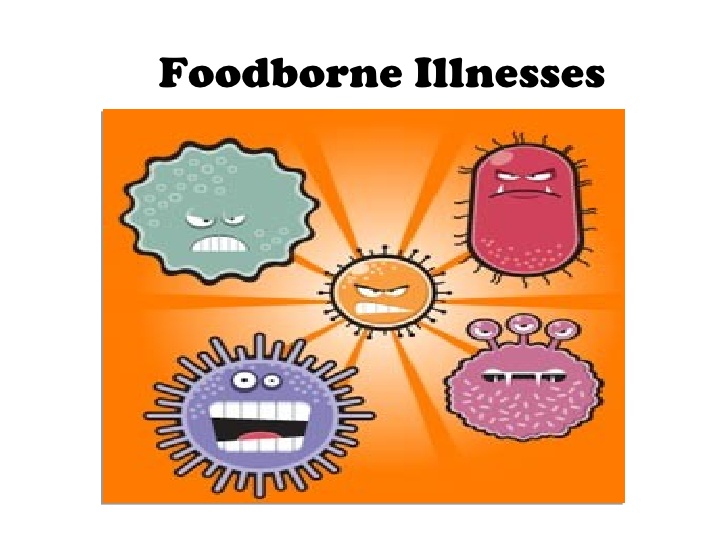FHealth A - Z
Foodborne Illness Causes, Symptoms, Diagnosis and Treatment

What is Foodborne Illness?
Foodborne disease is a pervasive problem caused by consumption of contaminated food and drink. More than 200 pathogens are associated with foodborne disease. Many different disease-causing microbes or pathogens can contaminate foods, so there are many different types of foodborne illnesses.
Causes of Foodborne Illness
Commonly recognized foodborne infections are:
- Campylobacteriosis (Campylobacter)
- Cryptosporidiosis (Cryptosporidium)
- Escherichiacoli and Hemolytic Uremic Syndrome (HUS)
- Giardiasis (Giardia)
- Listeriosis (Listeria monocytogenes)
- Norovirus Infection (aka Norwalk virus, calicivirus, viral gastroenteritis)
- Salmonellosis (Salmonella)
- Scombroid Fish Poisoning
- Shigellosis (Shigella)
- Toxoplasmosis (Toxoplasma gondii)
- Vibrio Infection (Vibrio parahaemolyticus)
- Yersiniosis (Yersinia species)
Food associated with foodborne Illness
- Raw Foods of animal origin, that is, raw meat and poultry, raw eggs, unpasteurized milk, and raw shellfish are the most likely to be contaminated.
- Fruits and vegetables can also be contaminated with animal waste when manure is used to fertilize produce in the field, or unclean water is used for washing the produce.
- Raw sprouts are particularly concerning because the conditions under which they are sprouted are ideal for growing microbes.
- Unpasteurized fruit juices or cider can also be contaminated if there are pathogens on the fruit that is used to make it.
- Any food item that is touched by a person who is ill with vomiting or diarrhea, or who has recently had such an illness, can become contaminated. When these food items are not subsequently cooked (e.g., salads, cut fruit) they can pass the illness to other people.
Symptoms of Foodborne Illness
Symptoms of foodborne illness ranges from mild to serious. They include
- Upset stomach
- Abdominal cramps
- Nausea and vomiting
- Diarrhea
- Fever
- Dehydration
Diagnosis of Foodborne Illness
Doctor may be able to diagnose the type of foodborne illness based on your symptoms.
In severe cases
- Blood tests
- Stool tests
- Urine test
Treatment of Foodborne Illness
Foodborne illness can usually be treated at home, and most cases will resolve within three to five days.
- If you have food poisoning, it’s crucial to remain properly hydrated. Sports drinks high in electrolytes can be helpful with this. Fruit juice and coconut water can restore carbohydrates and help with fatigue.
- Avoid caffeine, which may irritate the digestive tract. Decaffeinated teas with soothing Herbs like chamomile, peppermint, and dandelion may calm an upset stomach.
- Over-the-counter medications like Imodium and Pepto-Bismol can help control diarrhea and suppress nausea.
- It’s also important for those with food poisoning to get plenty of rest.
- In severe cases of food poisoning, individuals may require hydration with intravenous (IV) fluids at a hospital. In the very worst cases of food poisoning, a longer hospitalization may be required while the individual recovers.
By : Natural Health News




